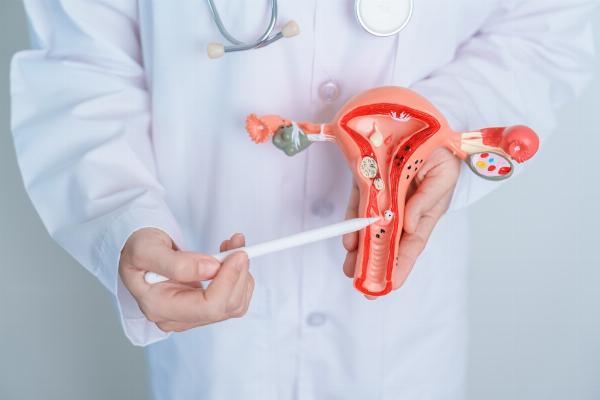PCOD and Fertility: How It Affects Conception and What You Can Do

Strong 8k brings an ultra-HD IPTV experience to your living room and your pocket.
Polycystic Ovarian Disease (PCOD), also known as Polycystic Ovary Syndrome (PCOS), is a common hormonal disorder affecting many women of reproductive age. This condition can significantly impact fertility, making conception more challenging. However, understanding how PCOD affects fertility and exploring the available treatment options can help manage the condition and improve your chances of conceiving.
1. Understanding PCOD and Its Impact on Fertility
PCOD is characterized by the presence of multiple small cysts on the ovaries, which can disrupt normal ovulation. Women with PCOD often experience irregular menstrual cycles, which can lead to difficulties in predicting ovulation and timing conception. Additionally, PCOD is associated with elevated levels of androgens (male hormones), which can further disrupt the menstrual cycle and cause symptoms such as acne, excessive hair growth, and weight gain.
The hormonal imbalances and irregular ovulation associated with PCOD make it one of the leading causes of infertility in women. However, with the right approach, many women with PCOD can still conceive and have healthy pregnancies.
In managing PCOD and improving fertility, some women turn to natural remedies and Ayurvedic supplements. Chandraprabha vati tablet is one such supplement that is commonly used in Ayurvedic medicine to help balance hormones and support reproductive health. This herbal remedy is believed to have a positive effect on the menstrual cycle, which can enhance fertility.
2. Lifestyle Changes to Improve Fertility with PCOD
Making lifestyle changes is a crucial step in managing PCOD and improving fertility. Maintaining a healthy weight through regular exercise and a balanced diet can help regulate menstrual cycles and promote ovulation. Weight loss, even as little as 5-10% of body weight, can have a significant impact on restoring ovulation and increasing the chances of conception.
Diet plays a key role in managing PCOD. A diet rich in whole grains, lean proteins, fruits, and vegetables, while low in refined carbohydrates and sugars, can help stabilize blood sugar levels and reduce insulin resistance, which is often associated with PCOD.
In addition to dietary changes, some women find that Ayurvedic remedies like Ashokarishta Syrup can support their overall reproductive health. This herbal tonic is traditionally used to regulate menstrual cycles and reduce symptoms associated with PCOD, such as menstrual irregularities and hormonal imbalances.
3. Medical Treatments for PCOD-Related Infertility
For women with PCOD who are trying to conceive, medical treatments may be necessary to induce ovulation and improve fertility. Medications like Clomiphene citrate (Clomid) are often prescribed to stimulate ovulation. In cases where Clomid is not effective, other medications such as Letrozole (Femara) or Gonadotropins may be used.
In vitro fertilization (IVF) is another option for women with PCOD who have not had success with other fertility treatments. IVF involves retrieving eggs from the ovaries, fertilizing them with sperm in a laboratory, and then transferring the resulting embryos into the uterus.
Alongside these medical treatments, incorporating Ayurvedic supplements like Kumariasava Syrup can offer additional support. Kumariasava syrup is often used to help balance hormones and improve digestion, both of which can be beneficial in managing PCOD and enhancing fertility.
4. Managing Symptoms of PCOD Naturally
Managing the symptoms of PCOD naturally can also contribute to improved fertility. Stress management is crucial, as stress can exacerbate hormonal imbalances and disrupt ovulation. Techniques such as yoga, meditation, and acupuncture can help reduce stress and promote relaxation.
Herbal supplements and natural remedies can also play a role in symptom management. For example, Chandraprabha vati tablet is known for its potential to support hormonal balance and reproductive health. This supplement may help alleviate symptoms like irregular periods and support overall fertility.
Similarly, Ashokarishta Syrup can be beneficial in regulating menstrual cycles and reducing symptoms such as heavy or painful periods. This traditional Ayurvedic remedy is believed to strengthen the uterus and balance hormones, making it a popular choice among women with PCOD.
5. The Importance of Regular Monitoring and Medical Consultation
While lifestyle changes and natural remedies can be effective in managing PCOD and improving fertility, it is essential to regularly monitor your condition and consult with a healthcare provider. Regular check-ups, blood tests, and ultrasounds can help track your progress and ensure that your treatment plan is effective.
For women with PCOD who are trying to conceive, working closely with a fertility specialist can provide additional guidance and support. Your specialist can recommend the best course of action, whether that involves lifestyle changes, natural remedies, or medical treatments.
Incorporating supplements like Kumariasava Syrup into your routine should be done under the guidance of a healthcare provider, especially when combined with other treatments. This syrup is believed to support reproductive health and may complement other treatments by helping to balance hormones and improve overall well-being.
Conclusion
PCOD can pose challenges to fertility, but with the right combination of lifestyle changes, natural remedies, and medical treatments, many women can overcome these challenges and successfully conceive. Supplements like Chandraprabha vati tablet, Ashokarishta Syrup, and Kumariasava Syrup can provide additional support by helping to regulate hormones and improve reproductive health. However, it is important to work closely with a healthcare provider to develop a personalized treatment plan that addresses your specific needs and enhances your chances of conception.
Note: IndiBlogHub features both user-submitted and editorial content. We do not verify third-party contributions. Read our Disclaimer and Privacy Policyfor details.


